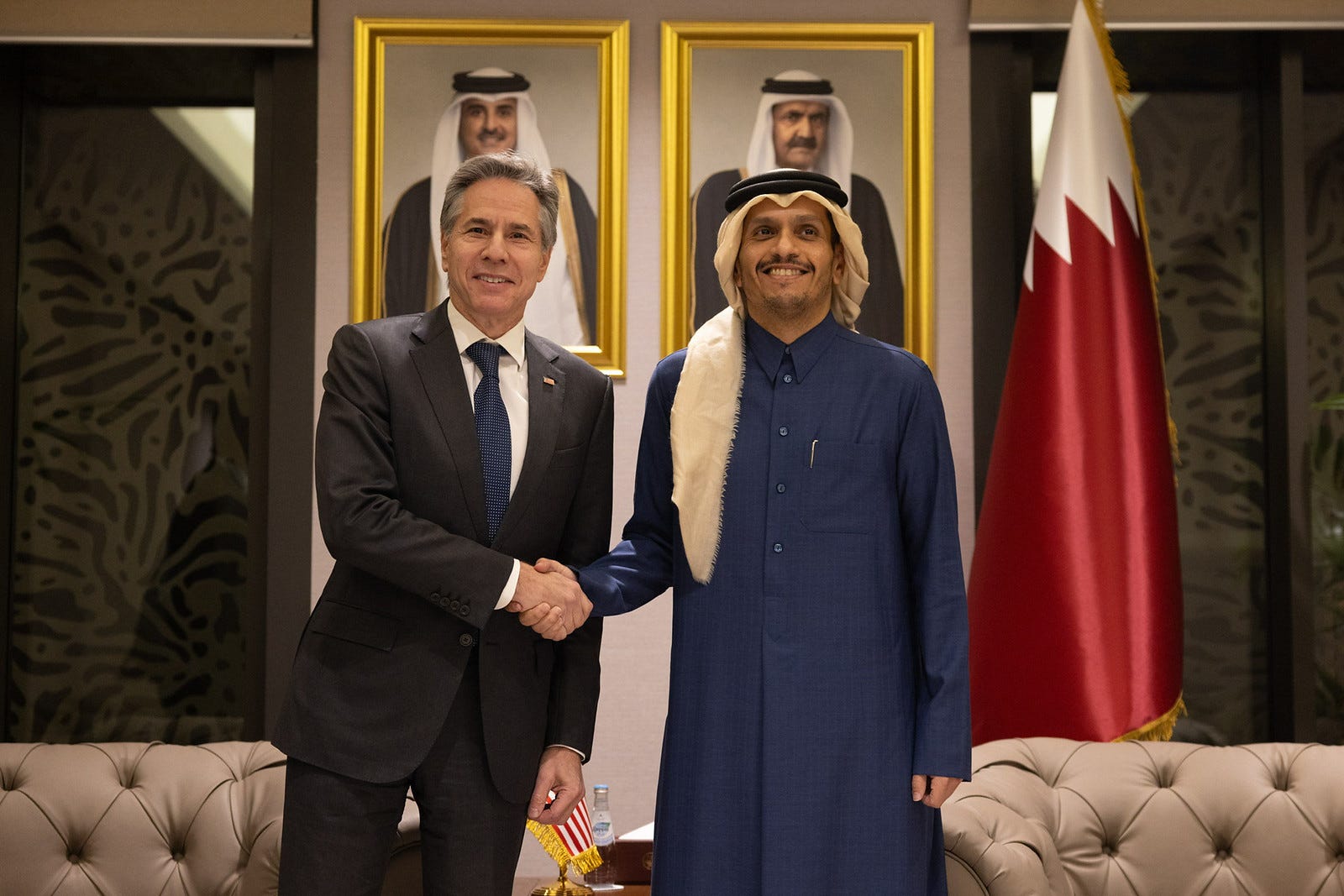How Hamas-Sponsoring Qatar Won Friends and Influenced People Atop American Society
My in-depth report on the seemingly two-faced House of Thani's sprawling multi-billion-dollar campaign to capture the U.S. ruling class, its impact, and implications

U.S. Asset or U.S. Adversary? Why Qatar Looks Worryingly Like Both
After Hamas’ Oct. 7 attack on Israel, one of the terrorist organization’s chief financial sponsors, hosts of its leaders, and backers of its propaganda found itself singled out by America’s leaders – not for condemnation, but praise.
“The U.S.-Qatar partnership could not be stronger, and Qatar could not have done more than it did in 2023 to play an indispensable role on the world stage,” U.S. ambassador to Qatar Timmy Davis wrote on X last December.
The Biden administration, from the president on down, has lauded the emirate throughout the Israel-Hamas war, especially for its shepherding of negotiations between the two sides for a ceasefire and hostage releases – a role Qatar is singularly capable of filling in part because it maintains Hamas’ “political office” in its capital city, Doha.
At the annual Qatar-led Doha Forum last December, Republican South Carolina Sen. Lindsey Graham echoed the Democratic administration, while also thanking Qatar for its assistance evacuating Americans during the deadly Afghanistan withdrawal – a success attributed in part to its harboring of another terrorist group, the Taliban.
Graham too thanked Qatar for accommodating “10,000 American airmen who live better than [at] any air base in the … world” – a reference to Al Udeid, the largest such facility in the region.
House Armed Services Committee member Rep. Jack Bergman, a Michigan Republican, highlighted the irony of this bipartisan praise, noting, “Our brave men and women in uniform who have served out of Al Udeid … have gone on missions to combat terrorist groups funded by Qatar.”
To understand how this tiny but rich, theocratic and terror-tied nation has become “indispensable” to Washington – elevated by the Biden administration to major non-NATO ally status on par with Australia, Japan, and Israel – RealClearInvestigations analyzed thousands of pages of congressional testimony and correspondence, other research and news articles, and conducted interviews with policymakers and scholars.
The analysis suggests how Qatar has wedded the leverage of the Pentagon’s operational demands, and policymakers’ desire to negotiate with adversaries, with a sprawling multi-billion-dollar campaign to “buy power and influence wherever possible,” as Richard Goldberg, a senior advisor at the Washington, D.C., think-tank Foundation for Defense of Democracies put it.
The upshot is that Qatar’s ruling House of Thani has executed what Goldberg told RCI is a “kind of terror-finance double game” transcending Hamas.
I expose that double game in a new in-depth piece for RealClearInvestigations, comprehensively chronicling Qatar’s pervasive influence efforts across the heights of American society, their impact, and the questions it raises for U.S. national security and foreign policy.
Read the whole thing here.


